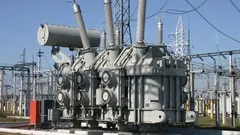
Systems Innovation 
This course provides an overview of systems innovation and change, offering a holistic approach to addressing complex challenges in organizations. Drawing on the work of prominent systems thinkers and contemporary researchers, it explores the potential for transformative change and is relevant to anyone interested in driving change within large complex organizations. Get a comprehesive understanding of this course which is a cost course. AZ Class provides this course data for free. Learn more certificate and details here. ▼
ADVERTISEMENT
Course Feature
![]() Cost:
Cost:
Paid
![]() Provider:
Provider:
Udemy
![]() Certificate:
Certificate:
Paid Certification
![]() Language:
Language:
English
![]() Start Date:
Start Date:
2020-06-06
Course Overview
❗The content presented here is sourced directly from Udemy platform. For comprehensive course details, including enrollment information, simply click on the 'Go to class' link on our website.
Updated in [October 18th, 2023]
What does this course tell? (Please note that the following overview content is from the original platform) Systems innovation and systems change are terms that have risen to prominence in the past few decades in the face of a new set of challenges that are recognized to be complex, interconnected, and highly dynamic. Around the world, societies face complex challenges as we find ourselves in a time of transformation. As advanced economies move out of an industrial mode we see public institutions in crisis, our most critical systems in various stages of stalling, while the environmental challenge to build a sustainable future appears to grow ever greater and more pressing. At the same time societies' problem-solving capacities are at a record high, people are more informed and educated, there is more capital floating around than ever before - at the same time, many people want to be engaged in creating a different world and technology is enabling society to perform large collaborative tasks more effectively and at ever lower cost.With the rise of globalization, information technology and an unfolding environmental crisis the world has changed in quite radical ways in the past decades alone, as a consequence, we are challenged to evolve new organizational structures and capabilities that are currently significantly absent. After decades of living in this new globalized world a failure to gain traction on even one of the global challenges today is a testimony to a failing set of approaches. Current responses to our most pressing societal challenges - from poverty and inequality to ethnic conflict and climate change - appear not to be working. These problems are incredibly dynamic and complex, constituting an ever-evolving array of technologies, actors, and circumstances, yet we address them through traditional centralized bureaucratic processes of long-term planning based upon fixed future projections.Many of today’s strategic challenges, from security and terrorism to migration and water scarcity, can be better thought of as complex adaptive systems, continuously recreated through the ongoing choices, actions, and interactions among numerous players operating across dense global networks. Such systemic phenomena require a whole new strategic toolbox if we are to have any real impact in shaping the world we live in. There is growing awareness that these systems are in fact fundamentally complex and thus require a different approach. They demand a more holistic, networked, emergent and evolutionary approach. Building on complexity theories' deep knowledge of dynamic systems, systems innovation presents an alternative to our traditional centralized approaches.Systems innovation is a new systems-based approach to enabling change within complex organizations. It is a holistic approach that looks at the underlying dynamics and root causes of the issue, working with the innate evolutionary potential of complex adaptive systems to enable transformative change in their structure, behavior and functional capabilities.This course is an overview of the current state of systems innovation and systems change, it draws upon the work of prominent systems thinkers such as Donella Meadows and Russell Ackoff along with the insights from contemporary researchers and social entrepreneurs to give an overview of the current state of systems innovation. The course should be of relevance to anyone interested in transformative change within large complex organizations. We considered the value of this course from many aspects, and finally summarized it for you from two aspects: skills and knowledge, and the people who benefit from it: (Please note that our content is optimized through artificial intelligence tools and carefully reviewed by our editorial staff.) What skills and knowledge will you acquire during this course? During this course on Systems Innovation, learners will acquire the following skills and knowledge: 1. Understanding complex challenges: Learners will gain an understanding of the complex, interconnected, and dynamic nature of the challenges faced by societies today. They will learn to identify and analyze these challenges, including issues related to public institutions, critical systems, and environmental sustainability. 2. Problem-solving capacities: Learners will explore the current problem-solving capacities of societies, including the increased access to information and education, as well as the availability of capital. They will understand how these capacities can be harnessed to create a different world and address global challenges effectively. 3. Organizational structures and capabilities: Learners will recognize the need for new organizational structures and capabilities in the face of globalization, information technology, and environmental crises. They will explore the absence of these structures and capabilities and the implications for addressing societal challenges. 4. Strategic toolbox for complex adaptive systems: Learners will develop a new strategic toolbox to address complex adaptive systems, such as security, terrorism, migration, and water scarcity. They will understand the ongoing choices, actions, and interactions among numerous players in these systems and how to have a real impact on shaping them. 5. Holistic and networked approach: Learners will adopt a holistic and networked approach to systems innovation. They will understand the underlying dynamics and root causes of issues and work with the innate evolutionary potential of complex adaptive systems to enable transformative change in their structure, behavior, and functional capabilities. 6. Knowledge of systems thinkers: Learners will study the work of prominent systems thinkers, such as Donella Meadows and Russell Ackoff, to gain insights into systems innovation. They will learn from contemporary researchers and social entrepreneurs to understand the current state of systems innovation. Overall, this course will equip learners with the skills and knowledge needed to drive transformative change within large complex organizations by adopting a systems-based approach. Who will benefit from this course? This course on systems innovation will benefit individuals who are interested in transformative change within large complex organizations. It is particularly relevant for professionals working in fields such as organizational development, strategic planning, and social entrepreneurship. The course provides an overview of the current state of systems innovation and draws upon the work of prominent systems thinkers to explore the underlying dynamics and root causes of complex challenges. By understanding the principles of systems innovation, participants will be equipped with a holistic approach to enable transformative change in the structure, behavior, and functional capabilities of organizations.
Course Syllabus
Overview
Systems Thinking
Systems Analysis
Digital Transformation
Course Provider

Provider Udemy's Stats at AZClass
Discussion and Reviews
0.0 (Based on 0 reviews)
Explore Similar Online Courses

Mastering System Design:

Business Valuation - Mergers and Acquisitions

Python for Informatics: Exploring Information

Social Network Analysis

Introduction to Systematic Review and Meta-Analysis

The Analytics Edge

DCO042 - Python For Informatics

Causal Diagrams: Draw Your Assumptions Before Your Conclusions

Whole genome sequencing of bacterial genomes - tools and applications

power system analysis by Etap

Power Engineering: Power System Analysis - Part 1


Start your review of Systems Innovation